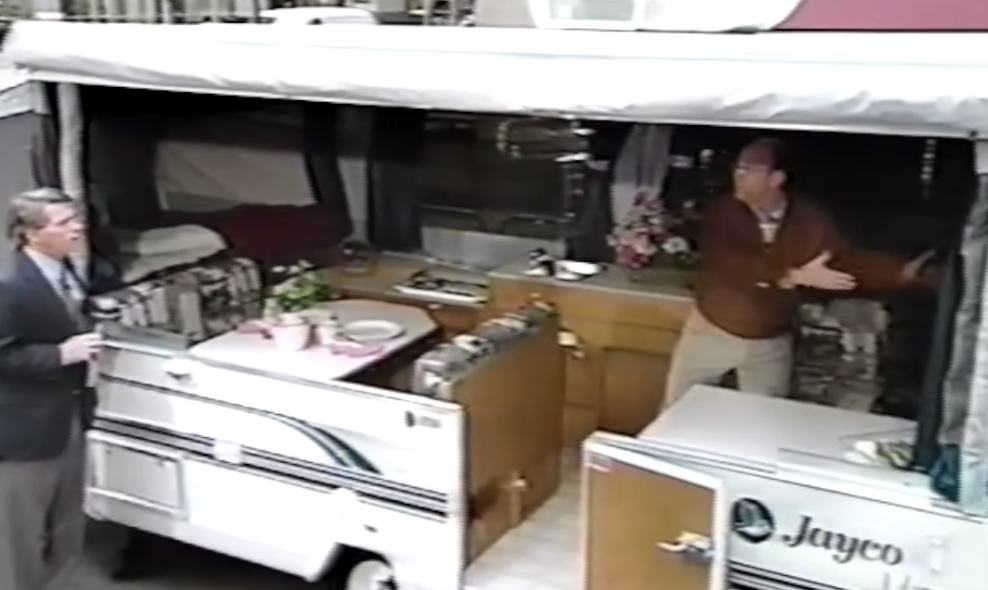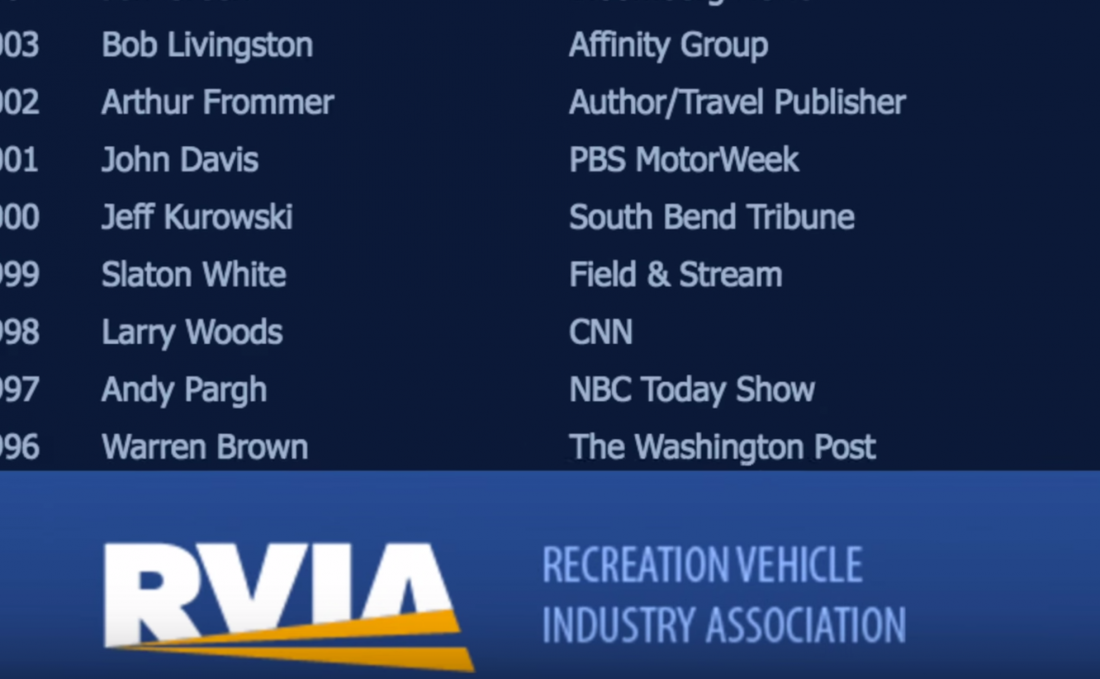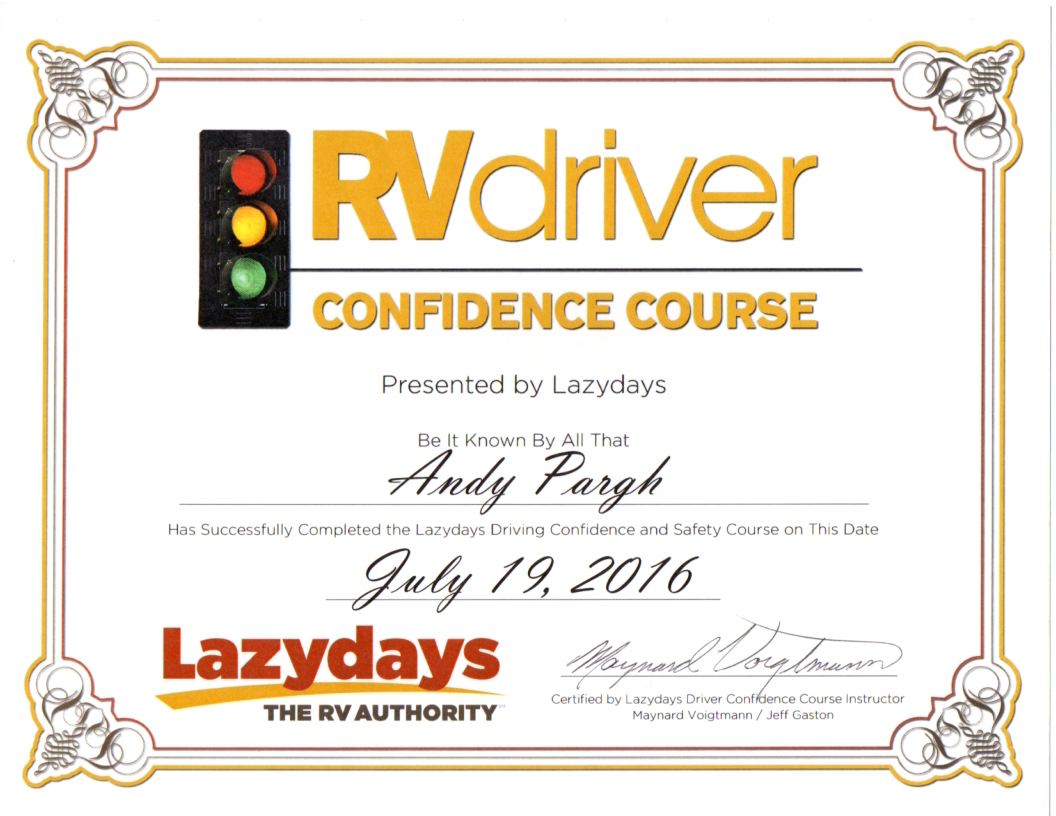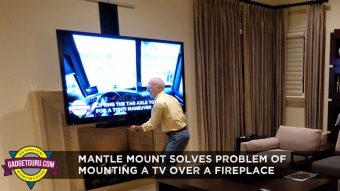How Will The RVIA React To RVDailyReport.com’s “Death Spiral” Series?
This story was originally published on July 27, 2016. Due to the increased popularity of recreational vehicle purchases due to COVID-19, I thought those shopping for a motorhome should fully understand that not all RV’s are created equally and most come with a fair share of challenges.
While The RV Daily Report is no longer in operation, much of that due to advertisers pulling out after this story was released, I am reposting the RV Industry Death Spiral Series here with the permission of Greg Gerber, its author.
Here’s the full RV Industry Death Spiral Series:
RV-Industry-Death-Spiral-compilation 2
Chapters Include:
Chapter 1: RV Death Spiral Overview
Chapter 2: Manufacturers In Race To The Bottom
Chapter 3: Suppliers In A Tough Spot
Chapter 4: Dealers Drop The Ball On Service
Chapter 5: Campgrounds Losing Capacity
Chapter 6: Associations Can Influence Change
Chapter 7: RV Owners Share The Blame
Chapter 8: RV Media Falls Asleep
Is the RV industry truly in a “Death Spiral?” And, how should the RVIA respond to Greg Gerber’s RV Industry Death Spiral series of reports? I’ll get to that in a moment, but first some background.
In 1996 and again the following year, I produced and hosted live TV segments for NBC’s Today Show that highlighted new products in the RV, Camping and Motorhome industries. Simultaneously, I penned companion print stories on the same topic that appeared in my syndicated newspaper column, USA Today page, on AOL.com and on an early generation of my GadgetGuru.com website. While these stories were brief overviews of what’s new in the RV industry and classified as features and not investigative reporting, due to the national distribution of my pieces, these various forms of media captured the eyeballs of a wide audience. It came as a surprise to me when I was notified by RVIA’s Public Relations company in 1997 that I had been selected by its board to receive its RVIA Journalist of the Year award.
Simultaneously, I penned companion print stories on the same topic that appeared in my syndicated newspaper column, USA Today page, on AOL.com and on an early generation of my GadgetGuru.com website. While these stories were brief overviews of what’s new in the RV industry and classified as features and not investigative reporting, due to the national distribution of my pieces, these various forms of media captured the eyeballs of a wide audience. It came as a surprise to me when I was notified by RVIA’s Public Relations company in 1997 that I had been selected by its board to receive its RVIA Journalist of the Year award. As I said then and I’ll repeat today, I was far from an expert in the campers, RVs and motorhome products I featured on TV and print and felt there were others who covered the RV industry on a daily basis who were more deserving than myself. I was told by the RVIA representatives this award was geared to go to those who, in essence, promoted the RV industry.
As I said then and I’ll repeat today, I was far from an expert in the campers, RVs and motorhome products I featured on TV and print and felt there were others who covered the RV industry on a daily basis who were more deserving than myself. I was told by the RVIA representatives this award was geared to go to those who, in essence, promoted the RV industry.
It felt odd accepting this award, as at that time, I had never even ridden in a RV.
Possibly it was the term “Journalist” in the title that created a bit of conflict to me as while I’ve produced pieces that were considered Journalism, the stories I produced that featured new camping and RV products were by all practical standards, “features.” Yes, there is a difference.
It felt odd accepting this award, as at that time, I had never even ridden in a RV. While the RVIA officials offered to fly me from my offices in Nashville, TN to its industry convention in Louisville, KY and pay my lodging expenses, I asked if instead of flying, if could I ride in an RV to the show. My request was accommodated, but since most of the larger, more luxurious motorhomes were on display on the show floor, I was transported in a much smaller model. When I stepped to the podium, I made my lifelong fascination, but lack of experience with RVs the topic of my acceptance speech. Of course I acknowledged the boom cycle the industry was currently experiencing. That was in 1997.
During that era in my life, I was busy and was a well known multi-platform content creator. Along with a staff, I was producing approximately 100 live and taped TV segments each year, penning a weekly syndicated newspaper column, was in the midst of launching my own magazine and a three book series. My office phones were constantly ringing and on the other end of the call were PR agents from a variety of industries.
For the most part, my weekday Today Show appearances were focused on products I had tested or had hands-on experience. The segments I performed on for Saturday’s Weekend Today were considered lifestyle or feature reports. When you look back 20 years, these RV themed segments may be the first that focused on the glamor aspects or “glamping” aspects of luxury camping.
While I had no experience with this mobile camping lifestyle, for these RV-oriented stories I worked with the RVIA’s outside PR agency, Barton-Gianelli who provided an overview of the industry and arranged for examples of various RV categories to be delivered outside the NBC Studios at 30 Rockefeller Plaza in New York City. Trust me, with all of the rules, regulations and security procedures in place, along with the necessary coordination with various Unions, this was not an easy task. But the PR agency put two of its best on this mission and Jon Tancredi and Frank Gianelli pulled this off without breaking a sweat. Here’s one of the segments that was broadcast live on Weekend Today in 1996:
Looking back to the day I received the call informing me the RVIA executive committee had voted to honor me with this award, I was puzzled. I was far from an expert in this field and simply produced somewhat informative segments that were fun to watch on TV and basically a gloss-over read in print. But as I stated then, shouldn’t an award with “Journalist” in the title have gone to someone who actually made RVs and related products the focus of coverage? Shouldn’t it have gone to someone who has actually used the products the industry manufacturers and who provided appropriate and balanced Editorial commentary? How about honoring someone whose primary audience was those who actually participated in the RV lifestyle?
In my opinion, Just because I had a vast audience was no reason to skip over the people who were much more deserving than myself.
Now, let’s fast forward nearly 20 years to where I’m finally at the stage of life where I have the time, resources and desire to enter the RV lifestyle…
From my personal experience and from reading the various online forums geared to RV users, it seems that initial product quality, sometimes long lead times for parts and the availability of timely service have become problems for the RV owner and have taken the word “recreation” out of recreational vehicle.
Due to the perfect storm of low interest rates, affordable fuel prices and optimistic consumer confidence levels, much like it was 20 years ago, RV sales are at record levels. But from my year of shopping for my first motorhome, I continue to find reasons to pause. From my personal experience and from reading the various online forums geared to RV users, it seems that initial product quality, sometimes long lead times for parts and the availability of timely service have become problems for the RV owner and have taken the word “recreation” out of recreational vehicle. These days, you’re hard pressed to find a public forum or online user group that is not filled with user complaints.
So, why is this happening?
Since, the manufacturers have had decades to learn how to build a quality product, why are so many users reporting a seemingly high level of initial and ongoing problems? Why is it that the users have come to expect a long punch list of needed repairs when purchasing a new motorhome or RV product? The often repeated salesperson’s line of these behemoths rolling through earthquakes and driving through hurricane force winds is, in my opinion, simply an excuse that in my opinion was caused by the industry’s preference of hitting a desirable price point than delivering a higher quality, well built product. It’s my understanding the RVIA, the industry association that honored me nearly two decades ago, is the group that sets and enforces quality standards. In the opinion of this potential Class A motorhome purchaser, it appears the RVIA’s self imposed quality standards are simply missing the mark. Maybe this is an over-simplification from my point of view, but from what I’ve learned through my personal research experiences, it appears this organization’s responsibilities are to simply to promote and protect its own industry and is operating with a basic two-fold mission:
It’s my understanding the RVIA, the industry association that honored me nearly two decades ago, is the group that sets and enforces quality standards. In the opinion of this potential Class A motorhome purchaser, it appears the RVIA’s self imposed quality standards are simply missing the mark. Maybe this is an over-simplification from my point of view, but from what I’ve learned through my personal research experiences, it appears this organization’s responsibilities are to simply to promote and protect its own industry and is operating with a basic two-fold mission:
- To glorify the RV lifestyle in order to get new customers into its dealer’s showrooms.
- To encourage politicians from enacting regulations such as HUD building standards or Lemon Laws that could cripple its current business model.
At this stage I’m just an outsider seeking a reliable, safe and comfortable motorhome built with the highest of quality standards to enjoy luxury over the road travel. I’m not looking for problematic models and am not prepared to deal with seemingly constant mechanical issues.
This has proven not to be an easy task.
While the dealerships are loaded with various models that on the surface appear to suit my mobile travel needs, when it comes to promises of bug-free deliveries or timely service, the conversation usually becomes silent. Yes, I’m not one who finds any recreation in camping in a dealer’s parking lot for what could be weeks awaiting service, when I could be parked overlooking a breathtaking view of the Rocky Mountains or facing a scenic waterfront. From my observations, it appears this industry, like many of the products it produces, is in need of a major overhaul. It seems that due to the rebounding effects of suffering through a recessionary period and now finding itself in the midst of a boom market, the RV industry has become a victim of its own success. From what I’ve learned to date, it seems the manufacturers are pushing units out the door at possibly too rapid of a pace in order to sell as many units as possible before the economy suffers another hiccup which will surely affect recreational sales and associated industries. It also seems the dealers are simply not equipped to handle the service needs of this growing market and this has resulted in an apparent high level of frustrated consumers.
It’s important to emphasize that I’m providing my personal point of view as a potential purchaser and not one that comes from someone who is dedicated to covering this industry. Unless I’m incorrect in my overall assessments of the industry, I welcome clarification. The current RVIA PR staff know how to reach me as I contacted this organization when I started my search for a new motorhome to learn if they could guide me to locations where I can learn to safely drive and operate a Class A motorhome prior to purchase.
Simply stated, the answer I received was No. I found this response strange as after all these years it appears the industry has overlooked the safety aspects of preparing a new buyer to maneuver a large RV or motorhome and have not developed an industry-wide program that teaches potential new buyers how to safely drive and operate a Class A motorhome or large RV product.
Huh?
So, what have they been doing all these years?
After all, the motorcycle industry’s equivalent to the RVIA is the Motorcycle Industry Council (MIC). Over the decades, in order to entice new riders into the motorcycle world, the MIC formed the Motorcycle Safety Foundation (MSF). This organization offers new rider training programs that are available in almost every major city that that teaches wannabe motorcycle buyers how to safely operate a motorcycle.
The MSF utilizes industry trained professional instructors who follow tried and tested methods for teaching first time riders the safety and operational basics to get started in the world of two-wheels. This program has been so successful that many States now require new motorcycle riders to take the class in order to get the proper driver’s license endorsement. As a result of this successful program, many insurance companies offer discounts to those who have taken the class. This incentive encourages even seasoned riders to take an experienced rider class.
Maybe it’s just me, but since most States require no special testing or licensing to operate even the largest of motorhomes, when I find myself sharing the highway with a shiny, new RV, I can only wonder if this that driver has received any training on the proper usage of air brakes.
Yes, motorcycles are not RVs, but they are vehicles that utilize public roadways. They are both categories of vehicles where new users can quickly find themselves in trouble. But what has the RV industry done in this regard?
Evidently, as little as possible.
I will say that while the RVIA representative did not inform me of this during our conversation, I later learned that retailer Lazy Days does offer classroom and driver orientation classes at its Tampa and Tucson locations. I recently spent two days at the sprawling Lazy Days campus in Tampa, FL and while a more detailed post of my experience will be coming soon, I can say that it was pleasant and I can recommend it to other newbies as it provides a nice entry to driving a motorhome. But, in my opinion, while the Lazy Day’s classes I experienced are noteworthy, the curriculum barely scratches the service. The classes are a nice orientation and while the 15 minutes behind the wheel during its driver confidence course teaches some interesting techniques, it seems it’s the industry’s responsibility to take this type of hands-on training to the next level. Don’t get me wrong, I greatly appreciate what this dealer is doing in this regard and it is a good start. The RVIA could do all new buyers a service and learn from what this dealership has created to convert and enhance this into a more comprehensive, industry-wide training program.
But, in my opinion, while the Lazy Day’s classes I experienced are noteworthy, the curriculum barely scratches the service. The classes are a nice orientation and while the 15 minutes behind the wheel during its driver confidence course teaches some interesting techniques, it seems it’s the industry’s responsibility to take this type of hands-on training to the next level. Don’t get me wrong, I greatly appreciate what this dealer is doing in this regard and it is a good start. The RVIA could do all new buyers a service and learn from what this dealership has created to convert and enhance this into a more comprehensive, industry-wide training program.
While I didn’t mean to get that far off topic, the underlying purpose of this story is to simplify the lives of the RVIA Board Members when it’s time to honor the next Journalist of the Year. Here’s the name of the person and organization who, unlike me, has truly earned this honor:
Greg Gerber, Editor of the RVDailyReport.com website.
In fact, you may want to give two awards this year as his small staff seems to be doing much of the heavy lifting that rivals even the largest of publications these days.
Case Closed.
But, for those who may not be familiar with Greg Gerber, let me inform you of a series reports he recently revealed over a period of two weeks. Simply stated, it is noteworthy.
Gerber and his RVDailyReport.com operation released an eight part series around the theme of the RV Death Spiral. Gerber, a 15 year veteran RV industry Journalist documented his findings after traveling the country in his personal RV and discovered the achilles heel of the industry. Or, shall I say the achilles’s heels of the industry as there’s a bunch of them. I encourage any potential RV or motorhome buyer to read Gerber’s reports as while they are opinionated, they mirror many of the experiences found by this potential first time buyer. I applaud Gerber’s efforts and thank him for documenting the current state of the RV industry.
Here’s the full RV Industry Death Spiral Series:
RV-Industry-Death-Spiral-compilation 2
Chapters Include:
Chapter 1: RV Death Spiral Overview
Chapter 2: Manufacturers In Race To The Bottom
Chapter 3: Suppliers In A Tough Spot
Chapter 4: Dealers Drop The Ball On Service
Chapter 5: Campgrounds Losing Capacity
Chapter 6: Associations Can Influence Change
Chapter 7: RV Owners Share The Blame
Chapter 8: RV Media Falls Asleep
Yes RVIA, take it from this previous recipient of your award. Mr. Gerber and his staff are the definition of “Journalists” and if the RVIA continues the tradition of offering its Journalist of the Year award, there is no more deserving individual and organization than Mr. Gerber and his RVDailyReport.com staff.
The question is, will they take my advice?
If they do are they acknowledging the warts of the industry or will they realize that to survive and flourish, rapid changes are needed? Yes, some manufacturers are doing things better than others and all that tells me is the industry needs to raise the standards bar and they need to first focus on providing timely and accurate service to its existing customers before adding new owners to the long service lines. Yes, potential buyers read the forums and there’s no way I can estimate how many potential buyers are simply not up to the task of putting up with the frustration that comes with owning an RV these days.
It’s my opinion the RVIA executives should thank Mr. Gerber and his staff for quite possibly being the single force who delivered the wake up call that shook up this industry and, in turn singlehandedly triggered the reversal of this problematic “death spiral” cycle.














